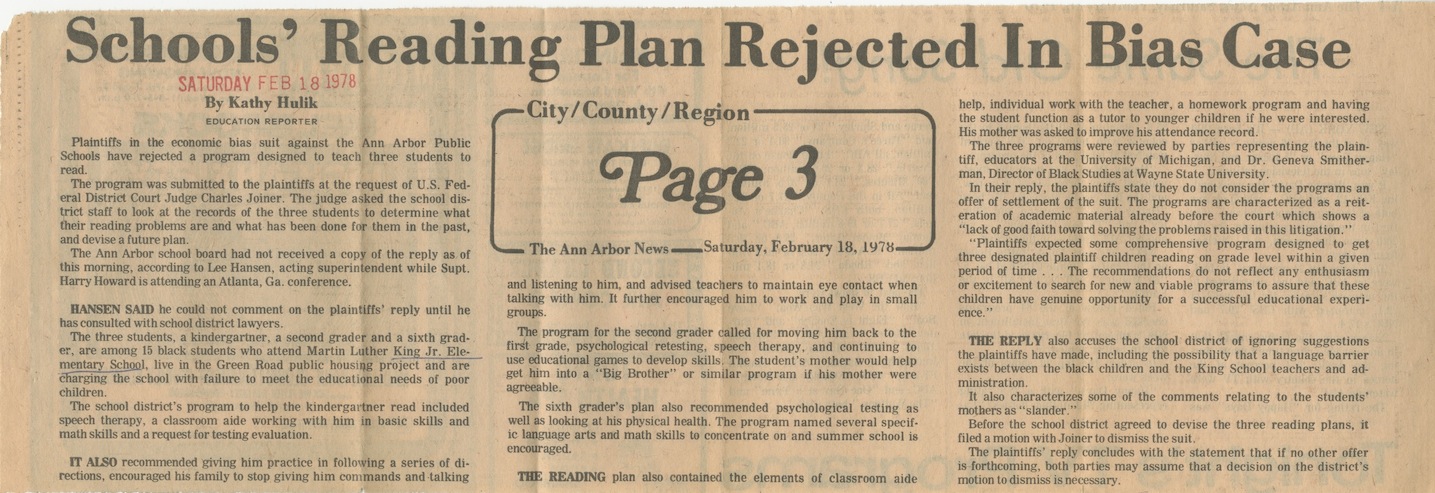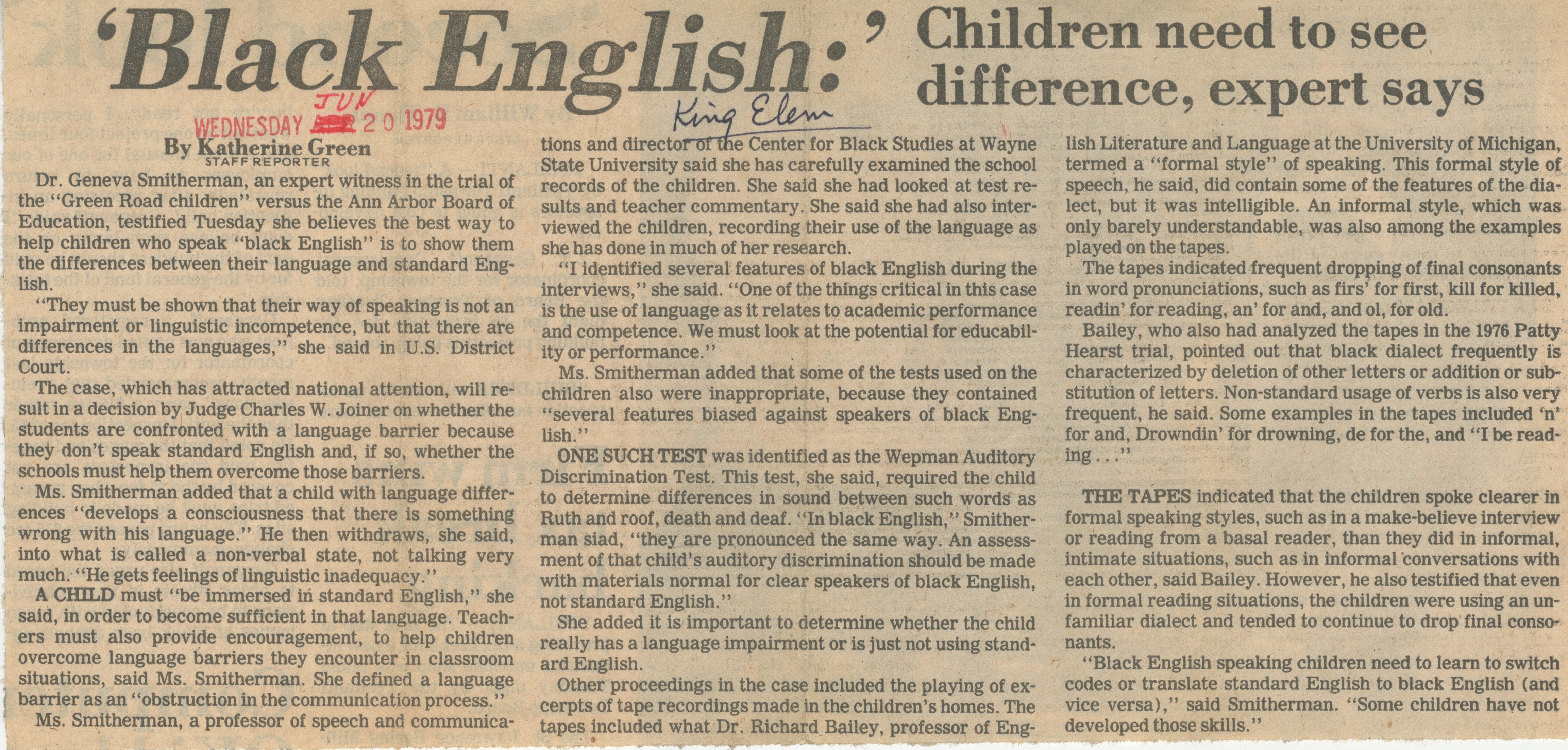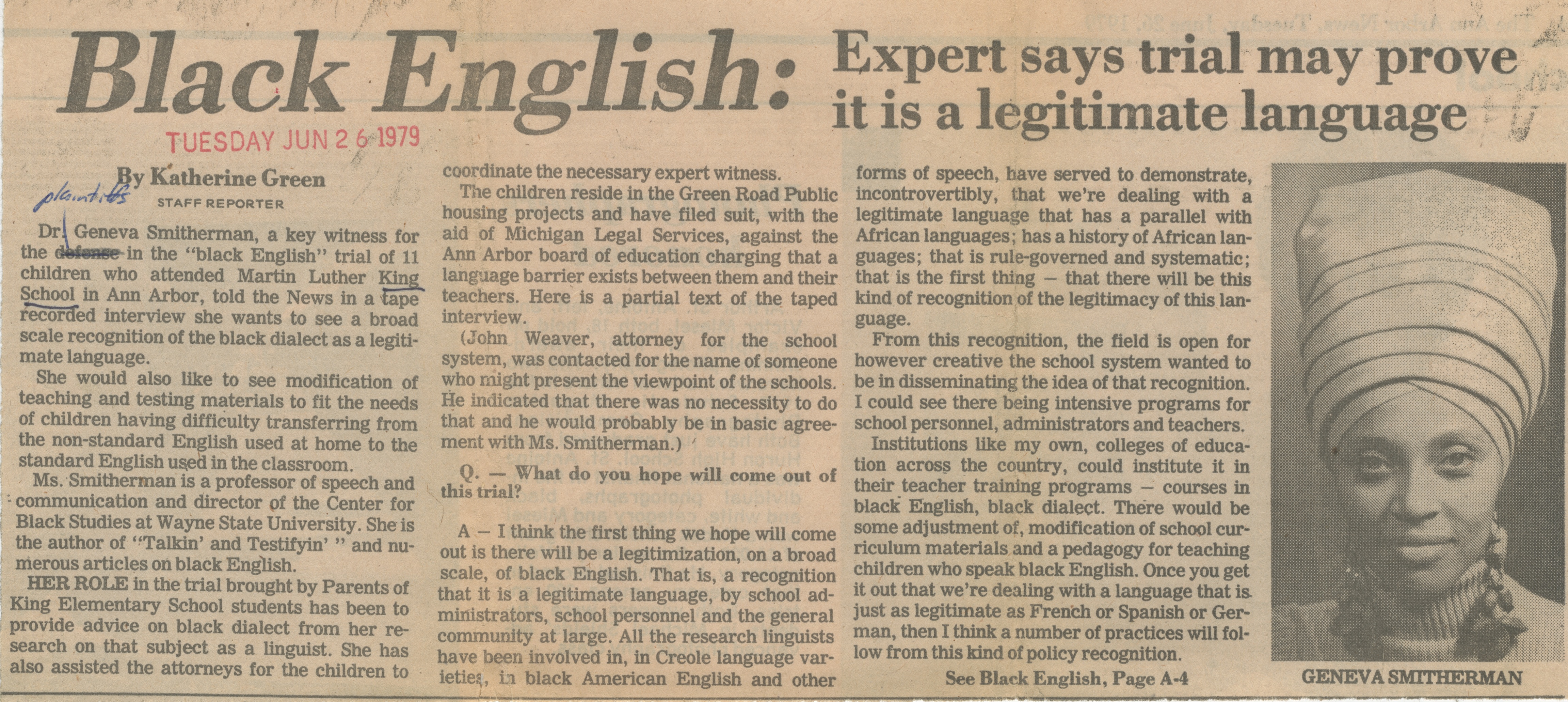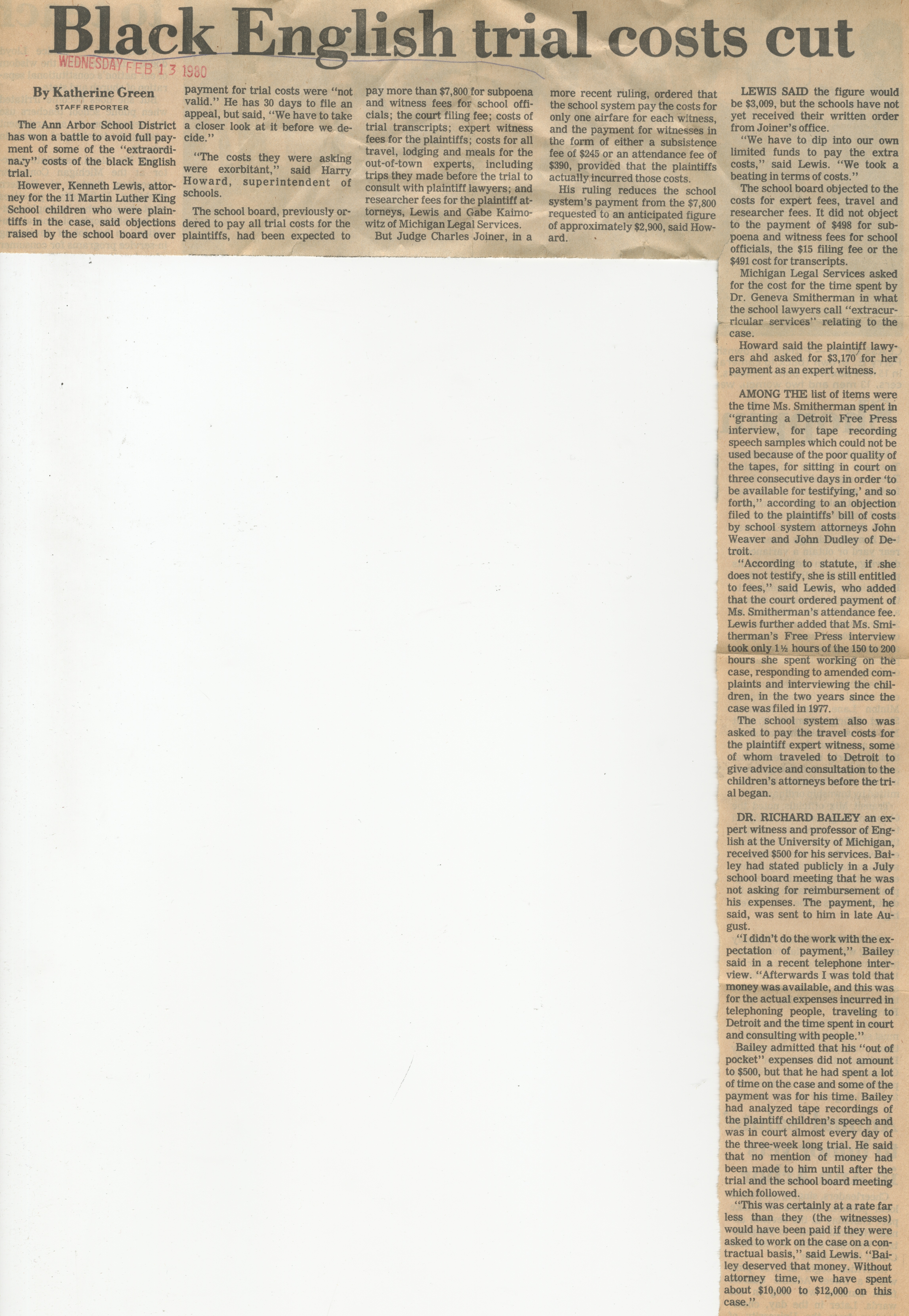Reading Plan Being Devised: Bias Suit Accord Closer

Parent Issue
Day
17
Month
January
Year
1978
Copyright
Copyright Protected
- Read more about Reading Plan Being Devised: Bias Suit Accord Closer
- Log in or register to post comments
Schools' Reading Plan Rejected In Bias Case

Parent Issue
Day
18
Month
February
Year
1978
Copyright
Copyright Protected
- Read more about Schools' Reading Plan Rejected In Bias Case
- Log in or register to post comments
Teachers: Extra Aid Unneeded

Parent Issue
Day
19
Month
June
Year
1979
Copyright
Copyright Protected
- Read more about Teachers: Extra Aid Unneeded
- Log in or register to post comments
"Black English": Children Need To See Difference, Expert Says

Parent Issue
Day
20
Month
June
Year
1979
Copyright
Copyright Protected
Schools Praised In Language Trial

Parent Issue
Day
21
Month
June
Year
1979
Copyright
Copyright Protected
- Read more about Schools Praised In Language Trial
- Log in or register to post comments
Black English: Expert Says Trial May Prove It Is a Legitimate Language

Parent Issue
Day
26
Month
June
Year
1979
Copyright
Copyright Protected
Black English Trial Costs Cut

Parent Issue
Day
13
Month
February
Year
1980
Copyright
Copyright Protected
- Read more about Black English Trial Costs Cut
- Log in or register to post comments
Author Raps Black English Attitudes

Parent Issue
Day
23
Month
February
Year
1980
Copyright
Copyright Protected
- Read more about Author Raps Black English Attitudes
- Log in or register to post comments